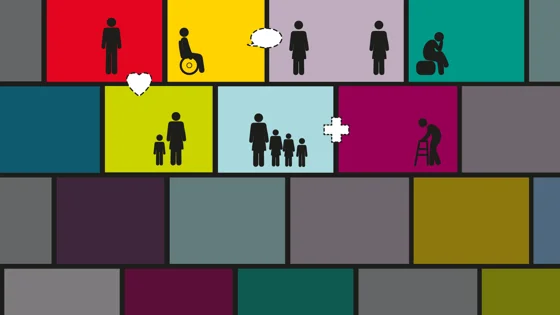How do we bring more diverse voices into the conversation about inclusion?

Contents
In an increasingly interconnected world, where difference is often articulated along racial, ethnic, or religious lines, how can we understand better how to overcome these problems and create a more inclusive society? And what is the role of social science in this process?
This was the topic of a session by Dr Manmit Bhambra, Research Officer in the Religion and Global Society Unit at LSE. Dr Bhambra’s research interests are centred around identity politics and formation of ethnic, religious and national identities, as well as broader themes of race, inclusion and minority rights. In recent papers, she has focused on the experiences of young British Sikhs and Hindus in London, as well as the challenges facing London’s interfaith networks and communities post-pandemic.
Speaking at an LSE Research Showcase, Dr Bhambra highlighted how barriers to inclusion can be understood and contested through social science research and shared her thoughts on the issues researchers should consider when developing projects. If we are to achieve greater inclusivity, she argues, focus must be placed on achieving and maintaining dialogue between the diverse social groups that make up our society. Representation is also key. Through striving to include more voices in debates around identity and belonging, we can better understand what facilitates acceptance and inclusion, and what hinders it.
The normalisation of othering marginalised people is a troubling social trend which aligns with the rise of divisive, far-right politics globally.
The politics of division
One phenomenon Dr Bhambra identifies as a driver of exclusion is the use of othering. This is when individuals or groups are treated as different and inferior from the dominant social group. "The normalisation of othering marginalised people is a troubling social trend which aligns with the rise of divisive, far-right politics globally," she says. "But we can do things to turn this around. An inclusive approach to understanding difference in society can act as a remedy to these destructive forces.
"Across the globe, the politics of us and them has become increasingly salient," she continues. "Discrimination often encompasses the sometimes less obvious, but equally damaging forms of prejudice. Ultimately, this can lead to a breakdown of dialogue and trust between people, which then poses a problem for achieving a more connected and globalised world. The best way to overcome this and to understand difference is to research it."
Dr Bhambra argues that, to do this effectively, researchers must explore how a person’s political orientations can be shaped by their experiences of difference – as determined by their own identities, and what these mean in relation to interacting systems of oppression. In researching how individuals relate to their respective group identities, she argues, we can help to demystify difference and increase community cohesion. This style of research can also aid in the rejection of negative and false stereotypes about minority groups, which troublingly persist in contemporary societies.
People are often lumped together into broad groups, especially in the case of minority communities.
Demystifying difference and combatting negative and false stereotypes
Dr Bhambra places an emphasis on the need to embed principles of inclusion within research design and methodologies. "As researchers we need to have these questions in our minds from the very start of our projects," she explains. "For example, through foregrounding the concerns of the population you wish to research when developing interview questions. This can be achieved through engaging in community dialogue before conducting your research. A collaborative approach like this can help social scientists bridge the cultural gap between researcher and subject."
Touching on her own experiences of researching diverse communities, Dr Bhambra highlighted how national identity and feelings of belonging among minority communities can be multifaceted. The picture also becomes more nuanced when we interrogate points of identity intersection and divergence within groups. Often, she notes, the results can be surprising: "People are often lumped together into broad groups, especially in the case of minority communities. We assume that everyone thinks the same, and the truth is that is simply not the case. When conducting research that may inform policy decisions, you must acknowledge the diversity within diversity which exists inside groups."
Her research on feelings of "Britishness" in young Sikhs and Hindus in London, for example, highlighted how complex discussions around national identity can be. One participant Dr Bhambra quoted in her showcase said: "I am British in the same way as I am Sikh, I’m Punjabi, I’m a Londoner – it’s just another thing that I am".
When you have a more nuanced, robust, and diversified data set, Dr Bhambra says, your findings will naturally have more powerful and inclusive practical applications. On generating impact, your research will produce a set of policy recommendations which more accurately reflect and regard the community which will be potentially affected. She concludes: "In this sense, through our research we can update models of understanding society and instigate meaningful change that centres the voices of, and serves, minority communities along racial, ethnic, or religious lines."
Image: Alamy
Download a PDF version of this article




